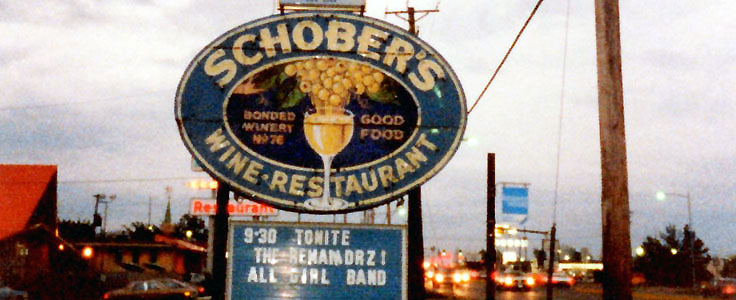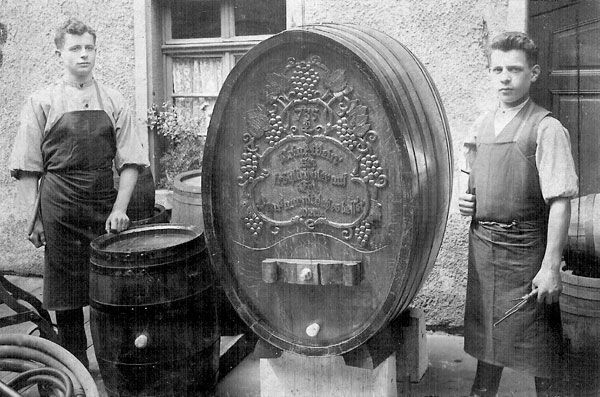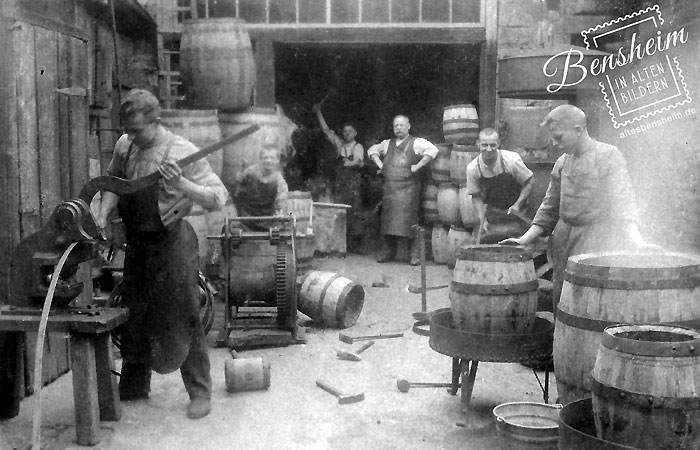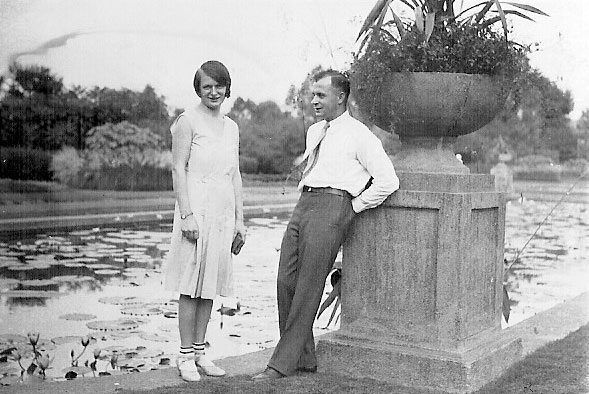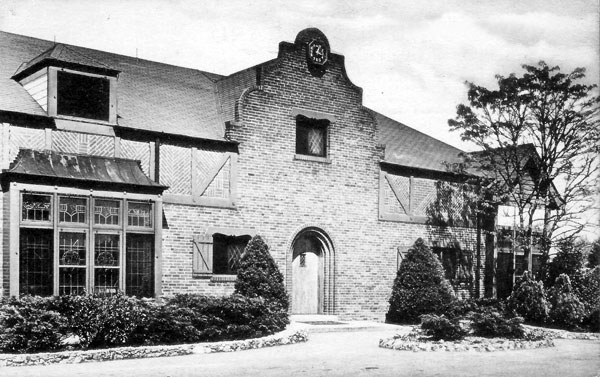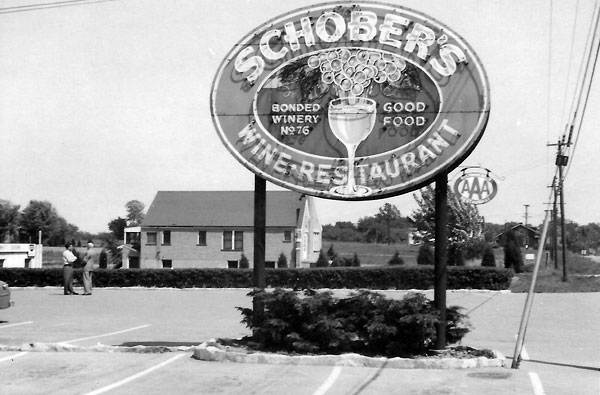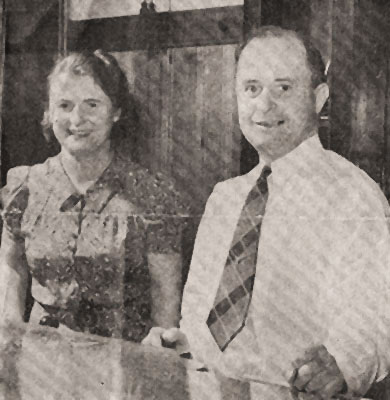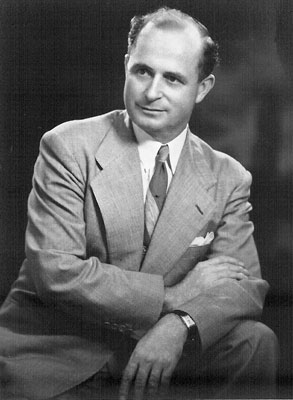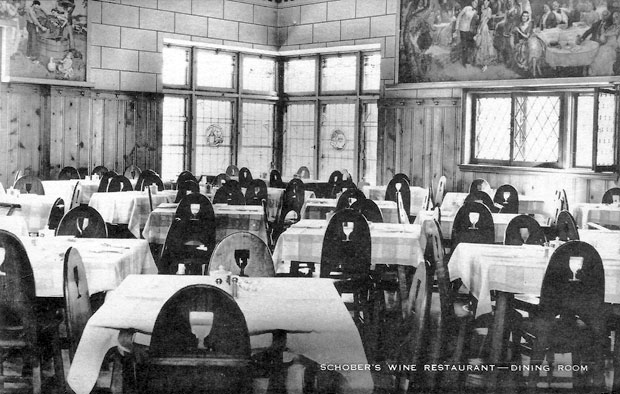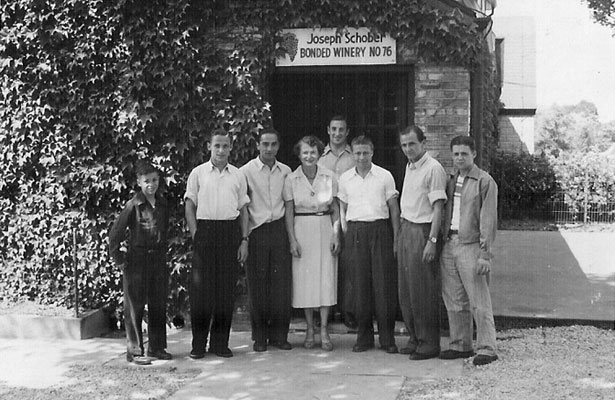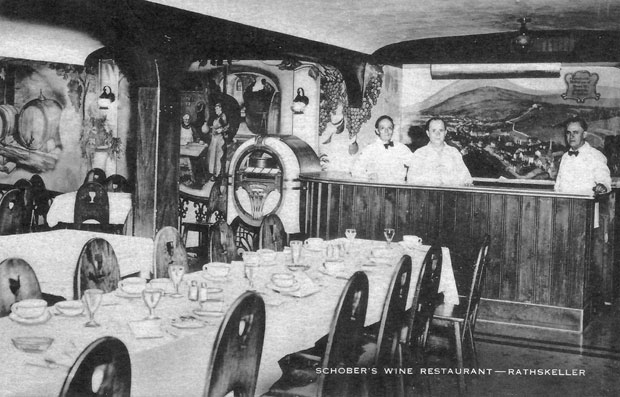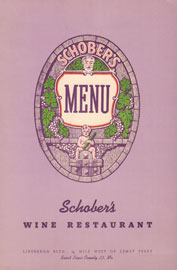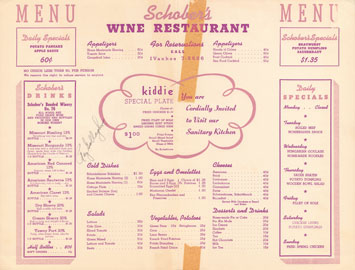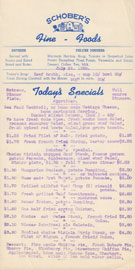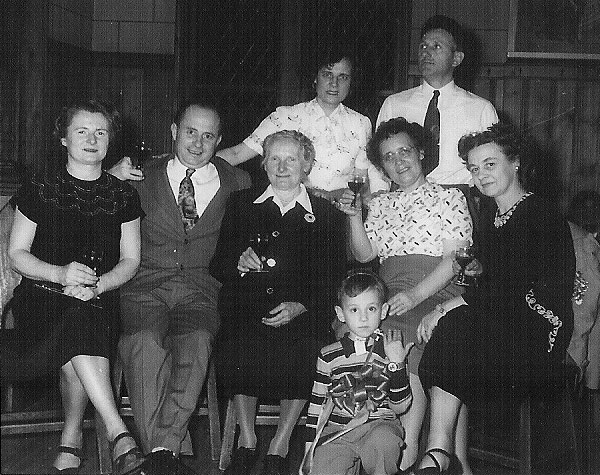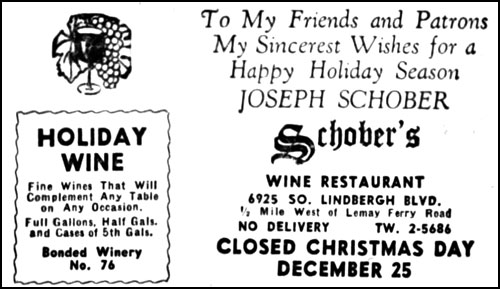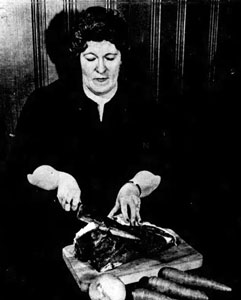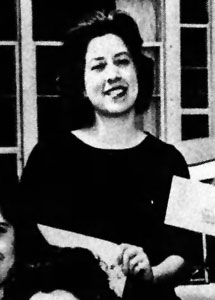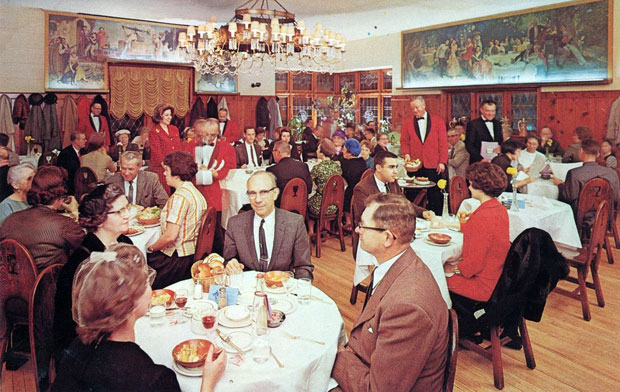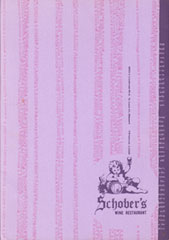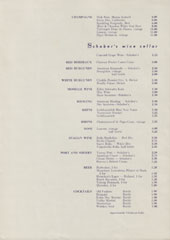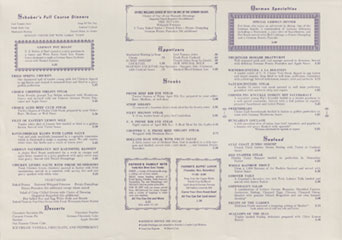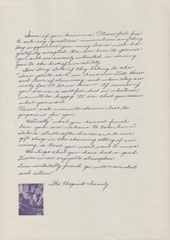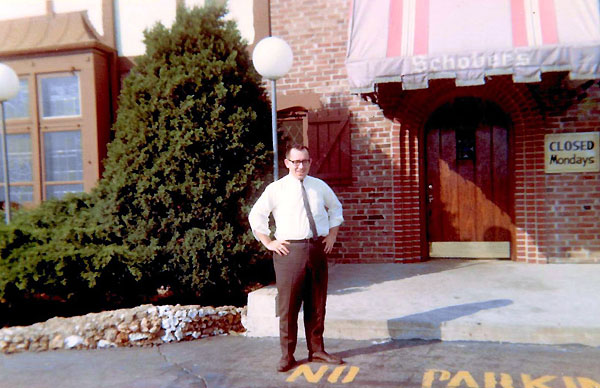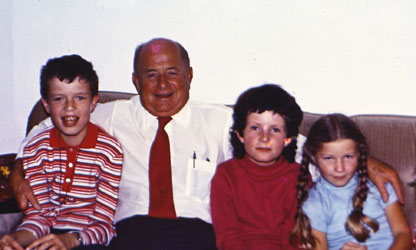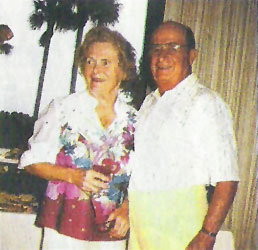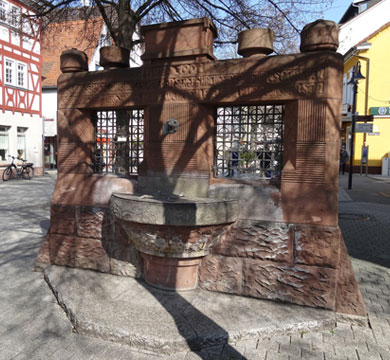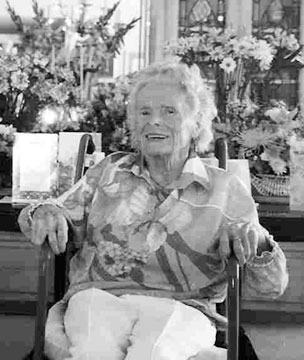|
Schober's Wine Restaurant
In July of 1928, a young German by the name of Joseph Schober
stood at the railing of the North German Lloyd liner Stuttgart as it
neared the Port of New York. He brought to America his credentials as a master cooper, a few dollars in his
pocket and the dream of owning a Weinstube like the one four generations of Schobers had presided
over in his hometown of Bensheim.
"In America it is possible to make your dream
come true," Schober reminisced in 1941, as he sat in his own Weinstube
in St. Louis. "All you have to do is work hard, be a good citizen, pay
your taxes and your bills, and not chisel anybody. On the fifteenth
of July in 1928 when I got here to St. Louis, I had $12.50 in my
pocket. Now I have this place. In Germany, I would have had
nothing."
In the summer of 1926, young Schober came across an ad in a wine industry trade journal. An American was looking for a young German cooper who would be willing to go to a place in the United States called St. Louis.
That same night, Schober talked things over
with his father. He pointed out there were no longer the same
opportunities in Germany that there were when the old master-cooper was young. A young
fellow could no longer hope to have a good business of his own.
Soon after his marriage, Schober was elevated
to the position of foreman with the Mangold company. When
prohibition was repealed in 1932, he was in charge of recoopering
the beer vats of such breweries as Anheuser-Busch and Griesedieck
Brothers. But as early as 1935, Schober began planning for a
business of his own. He saw the cooper trade becoming outmoded as
steel containers began taking the place of wooden vats.
In the 1940 census, Schober listed himself as
"proprietor" and Katharina as "cook." But Schober gave more than
half the credit for his success to Katharina, who was eight years
younger than her husband.
Schober's elegant dining room, with its stained
glass windows, always
had the smell of good German cooking in the air. Katharina's
Hungarian goulash, with small potato dumplings, was a favorite and
her recipe was featured in the St. Louis Post-Dispatch.
In the summer of 1941, Schober built an outdoor
garden next to his restaurant, which could seat 500. Patrons
were wined and dined as they listened to a string orchestra play
Strauss waltzes, just as Schober had in his father's Weinstube
in Bensheim.
By the end of 1941, Schober's had opened its Rathskeller,
available for private parties.
Schober's offered traditional German cuisine, including potato pancakes, sauerbraten, Wiener Schnitzel, homemade bratwurst and homemade apple strudel. They served their wines by the gallon and half gallon.
Schober's sisters, Felicitas and Louise, immigrated to the United States before World War
II. In the 1950s, Katharina's mother visited from Germany and, along
with the Ohlemüller family, they all celebrated at Schober's Wine
Restaurant.
Joseph Schober placed his annual holiday
message in the St. Louis Post-Dispatch in December of 1959, wishing
his friends and patrons a Happy Holiday Season. And then in 1960, he
and Katharina sold their restaurant and moved to Highland Beach,
Florida.
* * * * * On October 10, 1960, Jack and Betty Chapnick assumed ownership of Schober's Wine Restaurant. Prior to that, the Chapnicks had owned Chef's Cafeteria at 214 North 7th Street. The Chapnick's daughter, Marilyn, penned a recurring newsletter for the St. Louis Jewish Light "to let YOU know what is going on at Schober's, the people we see and the interesting aspects of our restaurant."
The Chapnicks owned and operated Schober's for just over six years. Then, in her January 18, 1967 newsletter, Marilyn Chapnick wrote, "I must bid a fond farewell to Schober's Wine Restaurant since we sold Schober's last week." * * * * *
In January of 1967, Richard Plotz became the
the third owner of Schober's Wine Restaurant. Plotz was born and
raised in St. Louis. He served in the Army Reserves, where he was
trained in the Cooks and Bakers School at Ft. Leonard Wood.
In his July 24, 1974 St. Louis Post-Dispatch review, Joe Pollack described Schober's large dining room with its paneled walls and "slightly cobwebby" chandelier. The "old-fashioned paintings" were still high on the walls, and the tablecloths were now red, with white napkins. The menu had kept its heavy German flavor, with a number of American standards. Appetizers included herring in sour cream ($1.50), shrimp cocktail ($1.95), onion soup or soup du jour (50 cents), cucumbers in sour cream ($1.25), crabmeat cocktail ($1.95), sweet and sour green beans (95 cents) and miniature bratwurst ($1.15). German entrees included bratwurst ($4.25), Wiener Schnitzel ($4.95), sauerbraten ($4.95), Koenigsberger Klopse ($4.25), German pot roast ($4.95) and a German dinner of bratwurst, sauerbraten and pot roast with cabbage, potato dumpling and potato pancake ($5.95). The opposite side of the menu displayed Hungarian goulash ($4.50), fried chicken ($3.75), chicken livers ($3.50), filet of sole ($3.50), fried shrimp ($4.50), scallops ($4.25), trout ($4.50), frog legs ($4.25), a fisherman's platter ($5.50), lobster tails ($8.95), T-bone ($5.75), strip sirloin ($6.95), rib eye ($5.50), pepper steak ($6.95), chopped sirloin ($3.75), filet mignon ($7.25) and a steak-lobster combination ($8.25). When Schober's opened in 1938, South Lindbergh was a sleepy country road. As that changed and fast food competition populated the area, the German restaurant could no longer compete. Without fanfare, Richard Plotz closed Schober's Wine Restaurant after serving a packed house on New Year's Eve of 1981. * * * * *
When Joseph and Katharina Schober sold their restaurant and
moved to Highland Beach, Florida in 1960, they had intended to
retire.
Instead, they purchased land in Lantana, Florida on which they built
a shopping center, which they operated
until 1979.
Joseph Schober died in 1984 in Highland Beach, Florida at the age of 82. Friends were asked to make contributions to the American Cancer Society, in lieu of flowers.
Joseph Schober and
Katharina Schachner first
met at a drinking fountain in Bensheim, Germany when they were
young. As car traffic grew in the city, the fountain was removed. In
1989, Katharina donated a replica of the fountain to the city of
Bensheim in memory of her husband.
Katharina Schober lived until 2004. The
Schobers left behind the Katharina and Joseph Schober
Foundation, which in 2015 made 26 grants and had a total asset value
of $1,892,504. Not bad for a young German who had immigrated to America
in 1928 with $12.50 in his pocket. Copyright © 2017 LostTables.com |

